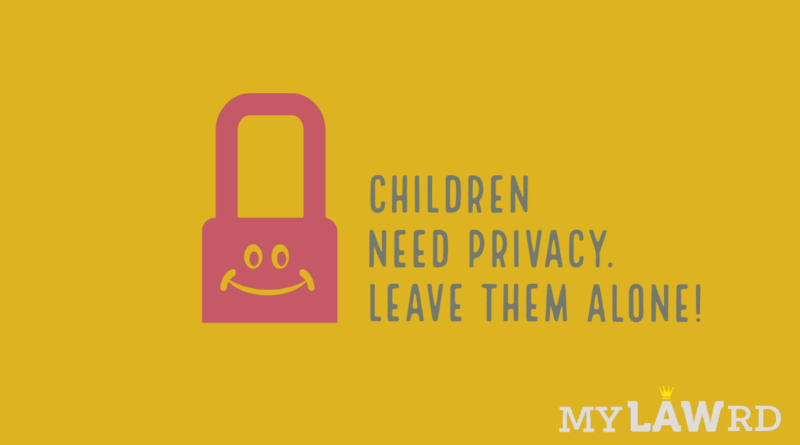Here’s why Instagram for kids is a bad idea
Campaign for a Commercial-Free Childhood (CCFC), an NGO working on child online safety and privacy, wrote a letter to the Facebook Chief Mark Zuckerberg. They urged him not to create a photo-sharing app – Instagram – for kids below 13. According to the CCFC, it can put children at “great risk”.
CCFC told Reuters that Instagram exploits youngsters’ fear of missing out (FOMO) as they constantly check their devices seeking external approval and keep uploading pictures. The platform’s continuous focus on appearance and self-presentation would be a challenge to the privacy and wellbeing of adolescents.
The letter also said, “While collecting valuable family data and cultivating a new generation of Instagram users may be good for Facebook’s bottom line, it will likely increase the use of Instagram by young children who are particularly vulnerable to the platform’s manipulative and exploitative features.”.
Need to safeguard the innocence of children
Children are innocent. They are learning the practices of the world. And they will take time to learn the society, crimes, and how to safeguard their interests. For learning and proper development, they need a sense of security, and confidence which will help them learn to take risks. Lack of an amicable environment can cause a child to feel lonely, anxious, or depressed and the child may even develop dependency on alcohol, smoking, and drugs.
Harmful effects of social media on children
Social media platforms tend to use algorithms to hold a user’s attention for as long as possible. They do so by tapping into psychological biases and vulnerabilities relating to the desire for validation and a fear of rejection. Studies have suggested that spending too much time on social media, even just scrolling it, can lead to feelings of jealousy, inadequacy, anxiety, depression, sleep deprivation, ADHD, and less satisfaction with life.
Profiling of children
In the era of artificial intelligence and big data, profiling a child’s behavior is an easy-to-do task for search engines, surveillance states, and e-commerce. Even strangers can profile them through open-source intelligence. Automated profiling of children can negatively impact safety, privacy, autonomy, and future life choices.
The web of loneliness
The time that children spend playing with their friends in the real world has decreased enormously in the last 20 years. Their social interaction span is smaller than what it should be. These days, children prefer to spend time with computing devices to play games and using social media to replace socializing. This leads to less developed social skills, which leads them to feel lonelier in the long run. Studies show that a single like on social media posts may make a person feel less lonely but that is only small spanned. Ultimately, children find it difficult to make meaningful bonds with other people, later in real life.
Online grooming
The Internet gives liberty to children to speak with people they know in real life like family and friends, but also with strangers. However, the online space is just not occupied with good Samaritans. There are predatory people out there who befriend children. Such people give space to children to share their thoughts and feelings. At times children end up sharing too many details like personal details of the family, addresses, and much more. With the help of this information, they can even rob the house. There have been instances where, after winning a child’s trust, strangers trick, persuade, force, or pressure children for morally wrong or illicit acts like sending nudes or sexual images of themselves. This could even lead to blackmailing.
Online bullying
Bullying by peers is another concern about social media platforms like Instagram. They allow bullies the veil of anonymity on the internet. Bullies use this opportunity to exploit the insecurities of a child. They can use violent, hurtful, and humiliating words or content just by pressing a key. This can impact the mental health of a child adversely and the imprints of such mishaps may impact their confidence and growth forever.
Exposure to illicit content
The Internet provides all sorts of information and content. Moreover, it advertises things that may interest the user. Internet may expose a child to illicit content which is not good for them considering their age and innocence. Having said that, you could use the new Kids Mode in Microsoft Edge to protect your child.
Touch to reality
Misinformation and fake news is a norm in today’s world of online influence. This can hamper the trusting ability of children in our institutions. Children find it difficult to distinguish between a fact and an online fiction due to a lack of experience and ability to think critically. As a result, they may feel fragile while trusting a person or institution, such as family.
Message to parents
Internet is important for the studies and development of children. But you need to make sure that your child does not become a victim of the above-mentioned mishaps. Keep a close watch on the internet activity of your child. Allow them to use the internet and social media only in your presence. Kindly check the content, whether it is child-friendly or not.
Do subscribe to our Telegram channel for more resources and discussions on technology law and news. To receive weekly updates, and a massive monthly roundup, don’t forget to subscribe to our Newsletter.
You can also follow us on Instagram, Facebook, LinkedIn, and Twitter for frequent updates and news flashes about #technologylaw.

